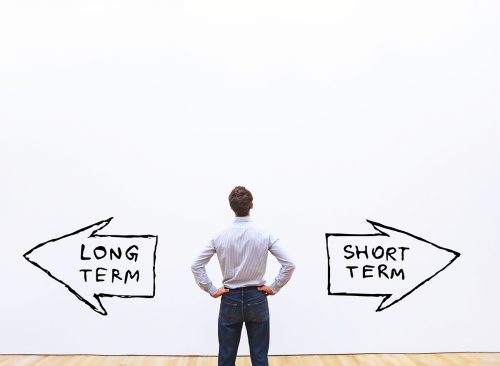
When making a decision, having more options isn’t always better. Unfortunately, that doesn’t necessarily make binary decisions—yes or no, stay or go, pineapple on the pizza or are you insane?—any easier. Sometimes, you might be tempted to go with your gut. But most of the time, you have enough time to contemplate an important decision and arrive at the best solution. No matter what you’re facing, these are seven key strategies experts say can help you make effective choices.

No matter what decision is in front of you, don’t ask everyone in the vicinity for advice. Nor should you go with the consensus from the people you do ask. Consulting people who have the relevant expertise for the situation you’re in will broaden your perspective and help you make the best choice, leadership mentor Martin G. Moore told the Harvard Business Review. “It will help you gain a greater understanding of the problem you are trying to solve and come up with smart, effective solutions.”

There’s a line between doing your due diligence before making a decision and analysis paralysis. “Every decision should come with some thinking as you weigh the pros, cons, consequences, and all the available options, but overthinking can keep you from being able to make a final decision,” says Indeed.com. “It’s important to be able to come to a conclusion without too much time spent evaluating everything. If you’re struggling with your decision, take a step away from it and return when your mind feels more clear.”

As part of your decision-making process, you’ll probably be confronted with several alternatives to the decision you must make. As you’re doing this, widen your lens and “use your imagination and additional information to construct new alternatives,” advises the University of Massachusetts—Dartmouth. List as many possible and desirable alternatives as you can think of. Taking the time to make this a discrete step could present the perfect solution you hadn’t considered.

“Often, when faced with a difficult problem, we focus on identifying the symptoms, not the core issue that caused the problem in the first place. If you do this, the same problem is sure to reappear down the road,” says Moore. “Although you may need to urgently address the symptoms, once this is done, you should always develop a plan to fix the root cause.”

“It’s seductive to only consider short-term outcomes,” says Moore. “Finding the right balance between short-term and long-term considerations is key to unlocking true value. The earlier you can incorporate this into your decision-making process, the better.” That applies whether you’re making a decision that could score you the corner office or mulling something that has nothing to do with work.

It’s good guidance for any type of self-talk: Step out of yourself for a minute and act like you’re advising someone close to you. “To make better decisions, pretend like you’re giving advice to a friend on how to proceed,” advises Indeed.com. “By doing this, you’re removing yourself from a situation enough to be more objective in your decision.”

“To make good decisions, it is best to prioritize and set a time limit. Establish a deadline. Have a goal mindset when setting priorities,” advises business consultancy HSI. “If a time limit is not set, it is easy to keep procrastinating and miss a key milestone. While it is important to find the best possible solution, remember not to strive for perfection. Sometimes it’s OK to be ‘good enough.'”














